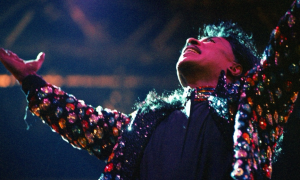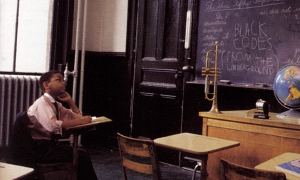Home » Jazz Articles » Opinion » Jazz: More Than A Performing Art?
Jazz: More Than A Performing Art?
Our classic vision of music is that of a performance by one or more musicians before an audience of music lovers where the music, as art and/or entertainment, is the sole element of the event, an event communicating the output of the music makers—composers, arrangers, players—with the receptive audience. Outside the concert room music finds many more essential roles; it combines with other art forms to create ballet, opera, musicals; it serves necessary functions in activities such as dancing, marching and working as well as more incidental roles in film tracks, drama and even in everyday life.
Jazz, in its many genres of the past century, has surfaced in all these areas and indeed made vital contributions in their development. However, the two distinct differences with jazz, wherever it is practiced, are:
- It is a music played by musicians primarily for their satisfaction—not to say it does not give satisfaction to millions of others—a music its exponents feel a compulsion to play, even approaching addiction, what I call natural music. As such it can be pure personal expression.
- It is a music ever on the move—a giant sponge absorbing worldwide cultures, ancient and modern, endlessly found in fusions of all descriptions and ever ready to adopt new technologies.
Through jazz has evolved some truly wonderful music, influenced by rich cultures from many parts of the world, working with the textures, harmonies, rhythms, ethnic instruments and musical theories. Whole new musical experiences are created when the freedom of jazz is interwoven with this wealth of musical heritage. Other fusions of musical styles—such as jazz-rock, jazz-funk etc.—have given jazz a real kick and have more often than not resulted in jazz exerting its influence on those other popular genres in return.
The uptake by jazz of new technologies referred to above is truly what is behind my question titling this column. Influence of new technologies is a dominant factor in the playing and development of jazz—the technology has probably manifested itself most notably in the production of new instruments. These are mainly synthesizers of all kind—guitars, keyboards, saxophones, trumpets, drums... In offering a new voice in music this development has naturally been of great interest to the jazz musician.
However, the impact of technology in the past decade that I believe has been most important to the jazz musician is in the field of sound recording. Recording equipment has been developed to extremes of miniaturization and recording quality excellence. Recordings began with musicians being assembled in studios, later the recording engineers were able to work on location to give us live recordings of concerts, festivals, etc. Then musicians could be recorded in locations of their choice—the only limitation being the physical space and number of musicians; such recordings gave us the acoustic characteristics of the venue, be it concert hall or railway station, church or open field, with or without audience presence.
Miniaturization and reasonable economics have now brought about what by some may be considered the ultimate in recording art—the solo musician at home with his recording equipment and anything from a lone human voice to a house full of electronic noise generators. He has the opportunity to form and create his music in his studio on whatever canvas he has chosen, be it tape, disc, hard drive or whatever data storage medium is next made available. He has the opportunity to create a work of art utilizing techniques such as overdubbing, sampling, remixing etc., techniques not available to him "in performance".
Then we are moving away from "jazz as a performing art" and giving jazz its fuller potential as a creative art—and this is what I consider the most exciting and enabling development in our music today. Jazz is more than performing, it is creating.
I dedicate this writing to the late Karlheinz Stockhausen and in particular his pioneering work of half a century ago in the Electronic Studios of what was then West German Radio, Cologne.
George Haslam is the founder and proprietor of SLAM Productions, an independent label specializing mainly in British jazz. Haslam is also an accomplished reed player with several albums on the label.
< Previous
Just Like This
Next >
Live At The Green Mill
Comments
About George Haslam
Instrument: Saxophone, baritone
Related Articles | Concerts | Albums | Photos | Similar ToTags
For the Love of Jazz
 All About Jazz has been a pillar of jazz since 1995, championing it as an art form and, more importantly, supporting the musicians who create it. Our enduring commitment has made "AAJ" one of the most culturally important websites of its kind, read by hundreds of thousands of fans, musicians and industry figures every month.
All About Jazz has been a pillar of jazz since 1995, championing it as an art form and, more importantly, supporting the musicians who create it. Our enduring commitment has made "AAJ" one of the most culturally important websites of its kind, read by hundreds of thousands of fans, musicians and industry figures every month.






















